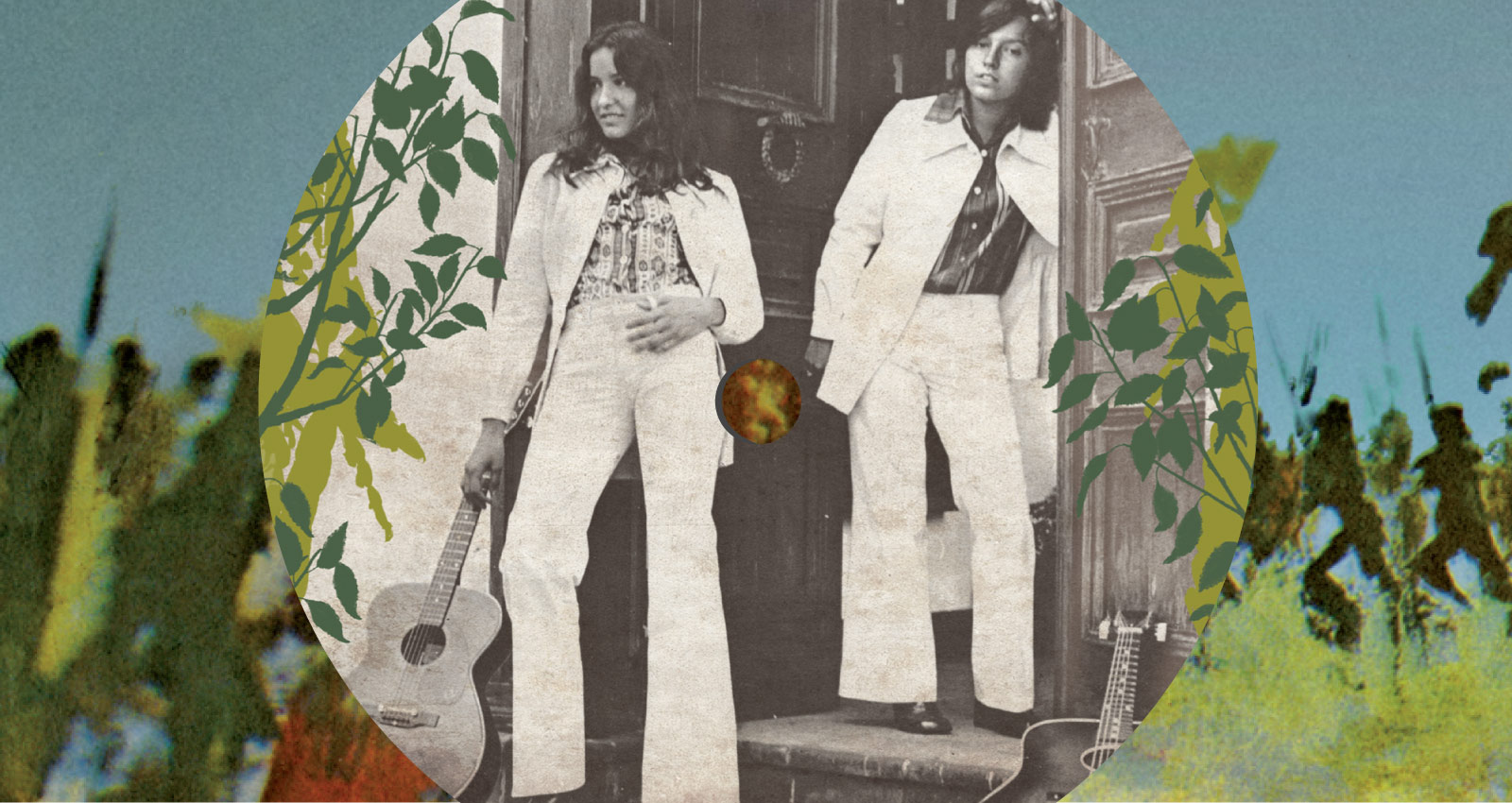
Back in 1983, Spanish brothers Iñigo and Gorka Pastor, like many other teenagers in the DIY scene who liked psychedelic rock, comics, and horror films, decided to make their own zine. Named after a failed movie spin-off of American sitcom The Munsters, La Herencia de Los Munsters was the Pastor brother’s hand-drawn homage to bands like Psychic TV and The Cramps. Eventually, Iñigo and Gorka turned the zine into a label, which they called Munster Records. By re-issuing garage and punk records in limited runs, Munster grew to become one of Spain’s main distributors of rare, underground sounds.
Munster Records’s catalog expanded after Iñigo moved to Madrid, where he fell in love with the music of the city’s large Latin American immigrant population. This led to Munster releasing reissues of legendary Peruvian garage bands such as Los Saicos and Los Yorks. Eventually, Iñigo decided to group these sounds on a new label: Vampisoul. Launched in 2002, Vampisoul focuses on reissues of funk, soul, Latin rhythms, Afrobeat, and rare grooves from the ‘60s and ‘70s.
“At first, the barriers between Munster and Vampisoul weren’t too clear, because they were close in sound,” explains DJ and longtime collaborator Javi Bayo. “[But] as the years went by, Vampisoul’s profile shifted towards Latin albums that brought back local rhythms, like son Cubano and Colombian salsa dura.” By refining their respective aesthetics, Munster and Vampisoul became two distinct labels with separate identities. Where Vampisoul reissues primarily Latin American catalogs, Munster Records focuses on rock and punk sounds—give or take the occasional electronic release.
Vampisoul worked to establish relationships with Latin American labels and collectors in order to reissue records that had become impossible or hard to find. “In many Latin American territories, traditional labels that survived until today started realizing the importance of their archive and their legacy. For many years, they didn’t imagine that anyone would request to hear that music again,” Bayo says. As part of this restoration project, Vampisoul began to publish releases from Discos Fuentes, one of Colombia’s longest running independent labels. Comprised of salsa, rumba, and calypso deep cuts, records from Discos Fuentes highlighted the rich sound of the ‘70s in Colombia: a crazy blend of descarga, Latin soul, and hippie psychedelia.
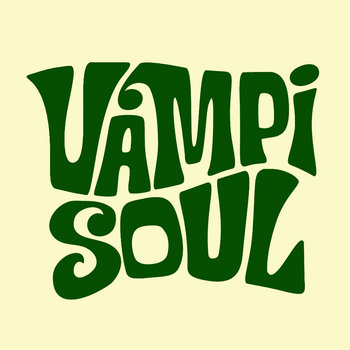


Vinyl LP

Whether it be the reissues of Discos Fuentes or other collections in the Vampisoul catalog, the label provides a home to a wide swath of Latino popular music including Peruvian bugalú, Puerto Rican bomba, and Cuban cha-cha-cha and brings to light important recordings from a variety of Latin communities for a new audience. Additionally, Vampisoul’s commitment to these recordings has renewed the visibility of Afro-Latino recording legends such as Fruko y Sus Tesos, Joe Bataan, and Rafael Cortijo. Through Iñigo’s hard work and sheer enthusiasm, Vampisoul proves that “contrary to popular belief, so-called ‘folkloric’ music is not always conservative and static, and is often the cultural space where musical innovation and experimentation first take place.”
Here are eight records that helped define the Vampisoul sound.
Coisa Nossa
Procurando O Caminho

7" Vinyl

Originally released in 1979 by a tiny Christian label from Germany, this killer Brazilian single was lost until it resurfaced on a compilation that made rounds through the jazz collector scene. Comprised of musicians Silvano Moro and José Prates, and singer Salomé de Bahia, Coisa Nossa recorded these tracks for a charity organization led by a bishop named Joseph Ratzinger (who would later move up the ranks to become…the pope). Fascinated by this music, Javi Bayo decided to track down the artists, who, to his surprise, owned a pizza place in Austria. “It was funny to find myself sending emails to a pizza restaurant in Austria, talking about this Brazilian music published by the Pope, but they answered,” recalls Bayo, “It was very exciting to see the artist[s] reunite with their work, and for us to become a vehicle between the past and the present.” The result is a unique 7” that showcases a perfect pairing of dynamic samba jazz and spiritual tones of berimbau.
Elia y Elizabeth
La Onda De Elia y Elizabeth

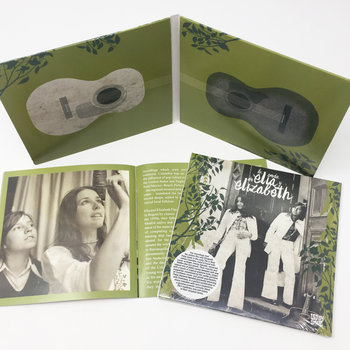
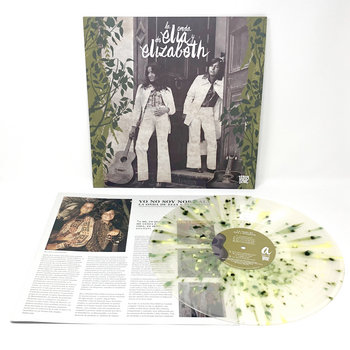
Vinyl LP, Compact Disc (CD)



Arguably one of the best records in the Vampisoul catalog, La Onda De Elia y Elizabeth compiles the recordings made by sisters Elia and Elizabeth Fleta between 1972 and 1973. Born in Colombia to Spanish parents, Elia and Elizabeth made their TV debut when they were only 12 and 13, later recording with bohemian producer Jimmy Salcedo and his backing band, La Onda Tres. The sisters’s soft harmonies, along with Salcedo’s tropical twang, yields a fresh mix of baroque pop: a delicate and playful songbook that reflects the group’s youthful sensibilities. Despite their popularity, Elia and Elizabeth abandoned the music industry: Elia became a nun, and Elizabeth a teacher. Fleeting and rare, the music of Elia and Elizabeth remains a jewel of playful sunshine pop. “If I had to choose one record, I’d choose La Onda de Elia y Elizabeth,” confesses Bayo. “It’s absolutely special, and it is one of the albums that best defines Vampisoul.”
Joe Bataan
Call My Name


Vinyl LP


Blending salsa, Latin soul, and tropical music, Afro-Filipino musician Joe Bataan made a name for himself during the ‘60s and ‘70s as one of the best-selling artists on the New York label Fania Records. A talented crooner, Bataan can slide gracefully between doo-wop ballads, Latin conga, and salsoul, penning lyrics that reflect the woes of the working class and the political struggles of the Latino community. “This record is not a reissue but a new recording, from 2005, that Bataan made with the producer Daniel Collás,” says Bayo. “The end result, soundwise, is exceptional: vintage and fresh.”
Alfonso Noel Lovo
Terremoto Richter 6:25

Vinyl LP

With a stunning black-and-white cover that depicts Nicaraguan artist Alfonso Noel Lovo at the center of a thunderstorm, Terremoto Richter 6:25 is one of those records where the superb compositions are rivaled only by the album’s monumental backstory. In 1971, on a flight back home to Nicaragua from the United States, Lovo was shot several times by Sandinistas who hijacked the plane. Miraculously, he survived and made a complete recovery. He then traveled to New Orleans, where the largely improvisational sessions that became Terremoto Richter 6:25 took place. “The record was first released in 1973 after an earthquake devastated Managua, and it was distributed locally by the artist,” recalls Bayo. In songs such as “Hijack” and “Terremoto,” the listener can discover a unique blend of pan-American rhythms dealing in psychedelia and mystique.
Los Destellos
Sicodélicos
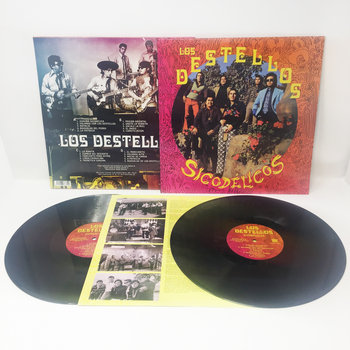

2 x Vinyl LP


Formed in 1966 by musician Enrique Delgado Montes, Los Destellos became the primary purveyors of a new sound that fused Peruvian cumbia, Andean music, and creole rhythms. Through trial and error, Delgado Montes achieved commercial success, and Los Destellos consolidated their own particular brand: making people dance while looking like rock stars. Sicodélicos compiles tracks by Los Destellos released between 1968 and 1978. Peruvian cumbias with ripping electric guitars: can we get any higher?
Various Artists
Flipper Psychout
According to Romano Di Bari, head of Italy’s Flipper Music, Italian library music was born amidst the rise in demand for stock music during the ‘60s. Companies created entire catalogs with one purpose: to be readily available as soundtracks for TV shows and films. Composers in need of a quick buck would be tasked with creating instrumental songs to serve as background music and the low-stakes, anonymous nature of the work fostered fertile ground for experimentation. Vampisoul’s Flipper Psychout compiles choice cuts from Flipper Music’s catalog that could score a B-film—somewhere in-between decadent Italo disco and fuzzed-out freak rock.
Various Artists
América Invertida
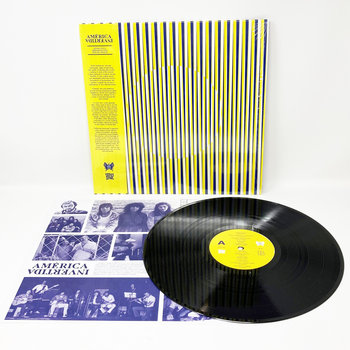
Vinyl LP

“I’m very fond of this release, which we put out in 2019. It carries on with our mission to focus on the musical legacy of South America,” says Bayo. “Uruguay is a small country, but their culture should be celebrated by the rest of the world.” Featuring songs from the 1980s by notable composers like Eduardo Mateo and Jaime Roos, América Invertida brings forth acoustic guitars and delicate vocal arrangements, mixing rhythms of milonga and candombe with polyphonic synthesizers, edging towards experimental pop. This fusion shines in the song “En este momento” by Travesia. The trio’s perfect harmonies narrate a shipwreck, crafting an evocative atmosphere that serves as a sample of what América Invertida is about: trailblazing music from a decade bursting with creativity.







